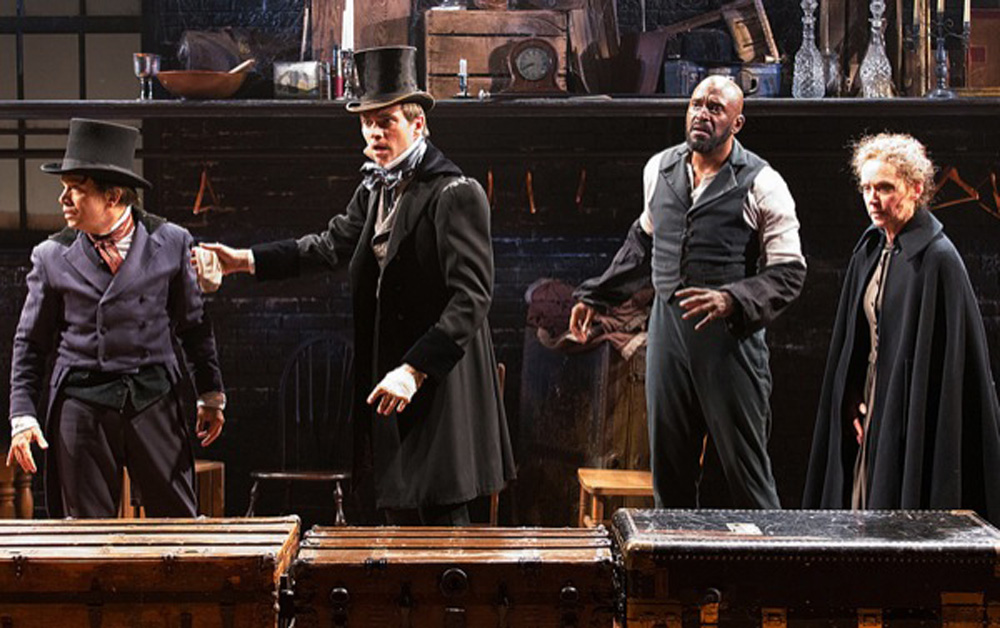
Dickens: Great Expectations. Arden Theatre, Philadelphia 2014
For many readers, Great Expectations is an enthralling and transformative epic, while for others it was boring required reading in high school. Whichever your opinion, the Arden’s production of it provides engrossing entertainment.
Considering these conflicting opinions of the book, how did director Matthew Decker and his team turn it into a stage success?
The adapter, Gale Childs Daly, is a graduate of the Goodman School of Drama in Chicago and is associated with that theater company. When this play was staged there in 2013 the set was filled with tall wooden bookcases, and the actors started scenes by reading aloud from books they pulled from the library shelves. Gradually, attention shifted from the seated readers to the characters in action.
Matt Decker at the Arden chose to put more emphasis on dramatic staging and less on the books. (Although the source of the words was made clear as the actors shifted between first- and third-person address.) Locale was defined by lighting, costuming, and a few simple props, plus the changing positions of the actors on the thrust platform. The large size of the stage in relation to the seating area emphasized the immensity of Dickens’s saga.
Great Expectations is the most theatrical of Dickens’s novels, including one scene that shows a production of Hamlet and another of a musical vaudeville. On the other hand, it resists theatrical staging because of its sprawling story, which stretches over 28 years and involves dozens of characters.
In this production, five of the actors divide 39 characters while a sixth one maintains the center of attention as the orphan boy who is given a fortune by a mysterious benefactor. Josh Carpenter is properly earnest as Philip Pirrip, known as Pip, as he matures from youthful innocence to morally questionable social climber, and eventually to sobered adult.
As fine an ensemble as you’re likely to see all year was brilliantly directed by Decker, who blocked the twists and turns with meticulous precision and perfect timing.
Brian McCann, Kate Czajkowski, Doug Hara, Lindsay Smiling, and Sally Mercer shined in a variety of roles. Among the standout characterizations were Czajkowski’s haughty Estella, McCann as the desperate escaped convict Magwitch, Hara’s loyal friend Herbert, Smiling’s blacksmith, and Mercer’s manipulative Miss Havisham, who was jilted at the altar when she was a young woman. Each of them transformed walk, accent, and gestures to make immediately clear when they were switching characters.
My only reservation is that the fire that killed Miss Havisham— Pip’s benefactor—was not spectacular enough. The incident is so special that Dominick Argento wrote an opera (Miss Havisham’s Fire) about it, and I craved a more gruesome representation.
Read other reviews on The Cultural Critic